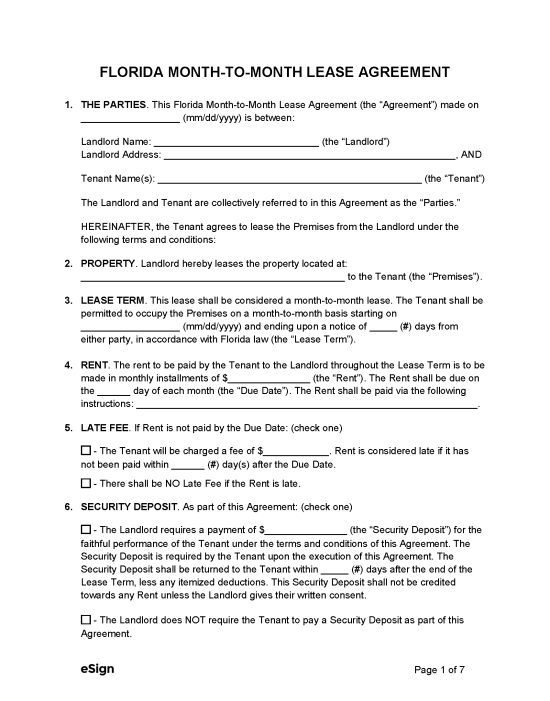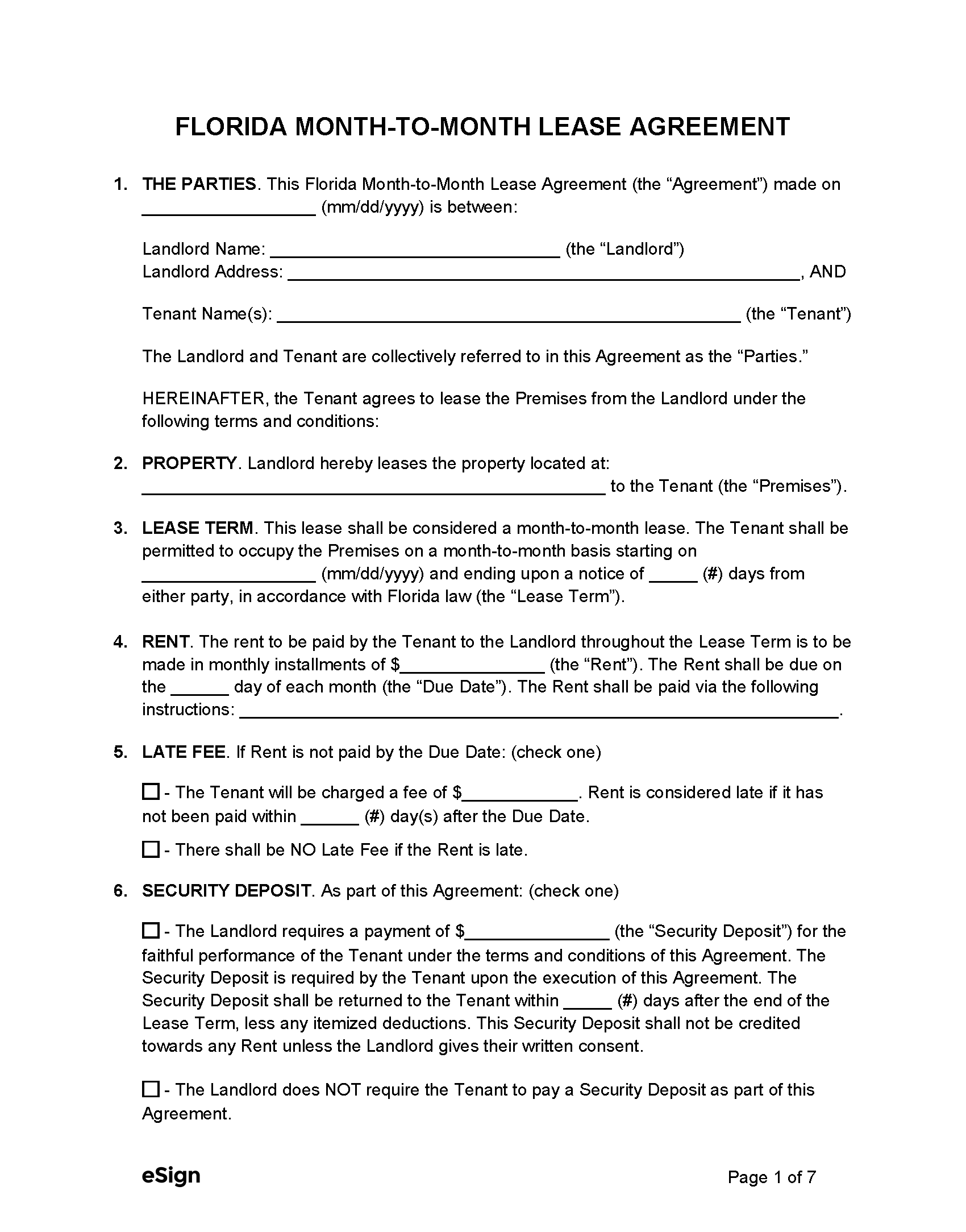Month-to-Month Laws
Termination Notice – Either landlord or tenant may terminate a month-to-month lease with a 30-day notice.[1]
- Miami-Dade County – Landlords must provide 60 days’ notice if they want a month-to-month tenant to move out.[2]
- Royal Palm Beach – A minimum 60-day notice must be given to terminate a month-to-month lease agreement.[3]
Rent Increase Notice – A 30-day notice must be given before the landlords may raise the rent.[4]
Required Disclosures (4)
- Identification – New tenants must be provided the names and addresses of the landlord or the person authorized to receive demands and notices on their behalf.[7]
- Lead-Based Paint Disclosure (PDF) – Landlords must provide this disclosure if the property was constructed before 1978.[8]
- Radon (PDF) – A radon gas disclosure must be provided to new tenants.[9]
- Security Deposit (PDF) – Landlords with five or more rental units must provide a written disclosure to the tenant regarding their security deposit location, whether they are entitled to interest on the deposit, and the account depository’s name.[10]

